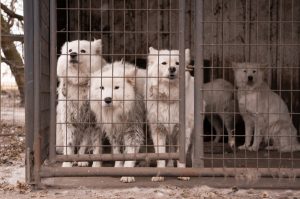
Activists praise this cautious step forward
By Brittney MacDonald, Life & Style Editor
Beginning January 1, 2019, retail pet stores in the state of California are banned from selling dogs, cats, or rabbits from private breeders. The law was originally passed in October 2017, after being presented by California State Assemblymember Patrick O’Donnell and signed by Governor Jerry Brown.
The law itself is called “The Pet Rescue and Adoption Act” and it specifically limits the retail sale of privately-bred animals. Instead, pet stores are allowed to carry only animals that have been brought in from government-funded animal shelters or non-profit rescue organizations. Any business found in violation of this law, or unable to provide proper documentation pertaining to where the animal is from, will be fined $500 per animal. Individuals seeking to purchase privately bred animals will still be allowed to do so.
For many animal activists, this is a major win. Pet stores are the largest source of revenue for illegal animal mills. If you are unsure what that term is, according to Avenson v. Zegart it is “a [animal] breeding operation in which the health of the [animal] is disregarded in order to maintain a low overhead and maximize profits.” This definition—which was originally presented in a 1984 US District Court case—referred to puppy mills and dogs, but the definition has been adapted by the ASPCA and its sister organizations to include a variety of animals.
It is the hope of the California government that this will not only affect the number of mills in operation, but also the sheer number of homeless animals that the state is dealing with. In the past, California has spent over $250 million annually to house and euthanize various shelter animals, O’Donnell said in an October 2017 press release.
In terms of seeing this sort of legislation come up to Canada, I would say it isn’t impossible. BC in particular has its own animal overcrowding issues, with places like Kelowna and 100 Mile House acting as havens for illegal breeding operations due to the amount of open land plots. Now that California has broken the ice, we will simply have to wait and see.



